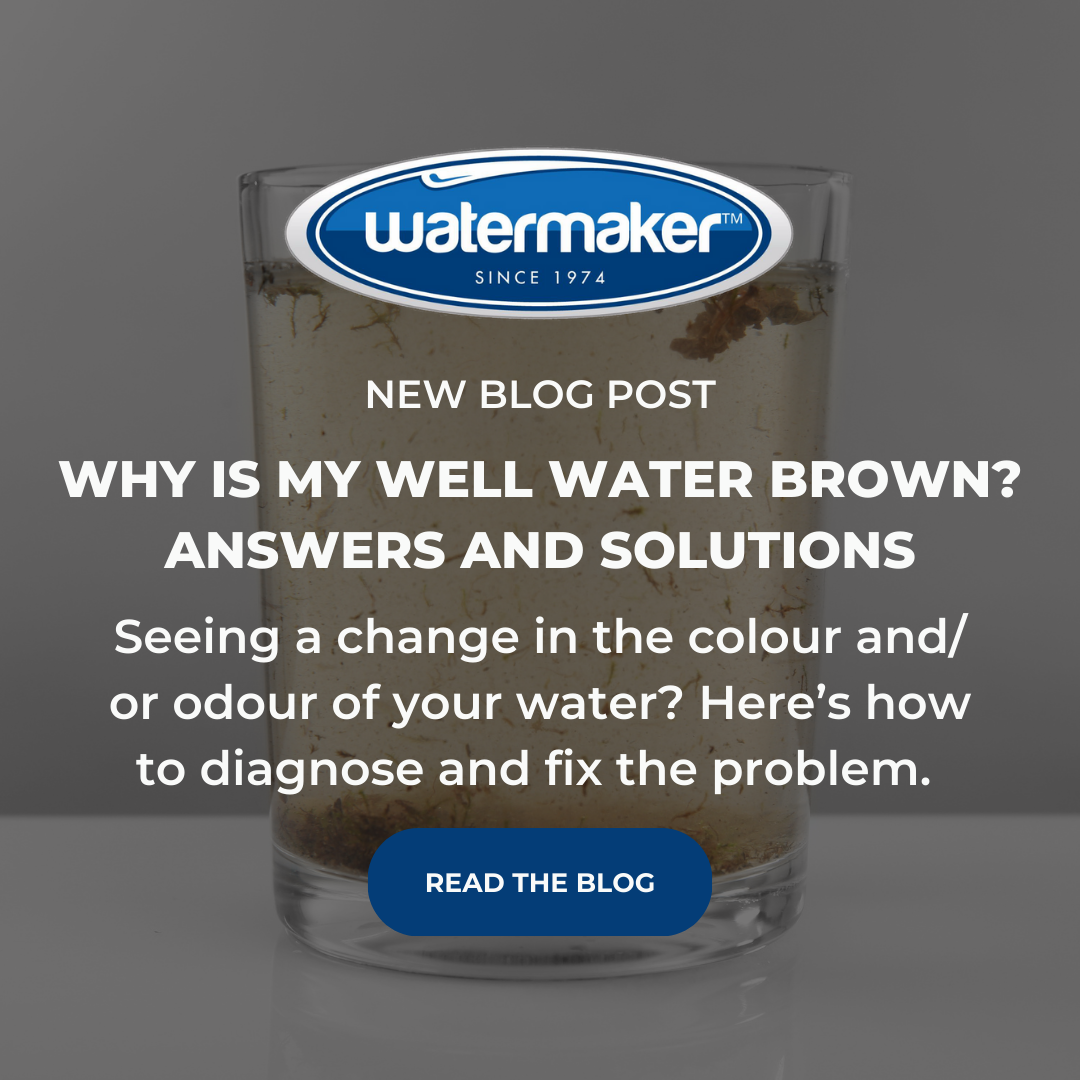Oh no, why is my well water brown!?
Are you seeing a change in the colour and/or odour of your water? Here’s how to diagnose and fix the problem.
Brown Well Water
If you rely on well water, the last thing you want to see is brown water suddenly coming out of your taps. When this happens, it’s natural to wonder what’s causing this discoloration, whether your well water is still safe for drinking, bathing, and washing, and, of course, what can be done to fix the problem.
Brown well water can indicate potential issues that could pose health risks or just be undesirable for aesthetic or practical reasons. Some people whose well water has turned brown may feel they have no alternative but to buy large quantities of bottled water, which is not a long-term solution.
There are different ways to diagnose and fix this problem. Let’s look at the most common causes for well water turning brown and what you can do to solve it.
What Causes Brown Well Water?
- Iron and Manganese: These are the most common culprits as these two minerals oxidize and form rust particles, turning the water brown.
- Tannins: Organic waste such as decaying leaves and vegetation can cause tannins to leach into the water.
- Sediment and Silt: Heavy snowmelt, rainfall, or flooding can cause sediment and silt to accumulate in your well, causing brown or muddy-looking water.
- Corrosion: As pipes and plumbing fixtures age, they can corrode, introducing rust particles into the water supply.
- Iron Bacteria: These living organisms can thrive in well water and produce brown slime.
- Groundwater Changes: Nearby construction or changes in the water table can disturb the groundwater source and introduce contaminants that discolor the water.
- Septic Contamination: Many rural properties with wells often have a septic tank nearby, increasing the risk of cross-contamination in the water.
Get Your Water Tested
The first step to solving your problem is to bring a sample of your tap water to Watermaker in Orangeville or Fergus for professional well water testing. This will help us determine exactly what is in your water and what is making it turn brown, and it will also help us determine the best water treatment solution for your home.
How to Fix Brown Well Water
After doing a professional water test, Watermaker will be able to make a recommendation about the best water treatment solution for your specific situation. You may even need a combination of water treatment devices. Here are some of our water filtration and treatment systems for treating brown well water and a wide range of other water problems:
- Reverse Osmosis: Household water is sent through a pre-filter to remove sediment, chlorine taste and odor, and any particulate matter. Then, using high pressure, the water is forced through a semipermeable membrane where a high percentage of the dissolved solids, etc., are rejected and flushed to the drain. Your clean, filtered water is stored in a tank until needed.
- UV Water Sterilisation: Easy to maintain and space-efficient, UV systems use a powerful lamp that shines ultraviolet light on the water to sterilize bacteria and viruses in a chemical-free, effective way.
- Iron Removal Filtration Systems: Iron filters can come in many designs to remove the brown colour. Some are chemical-free and do an excellent job of removing ferrous iron. Other types of iron may need a design that incorporates specialty filter media or chemical assistance, such as iron bacteria and tannins. Watermaker can design a system that suits your water quality.
- Whole Home Systems: Watermaker offers Wi-Fi-enabled whole home systems so you can control and monitor your water treatment devices and avoid potential problems before they become issues. Some whole home systems may require multiple stages of filtration to provide you with the water you desire. Watermaker can help you design a system to meet your immediate and future needs.
Contact Watermaker Today
If you have any concerns about the safety of the water supply from your well, contact us today to get your water tested by our local water professionals so we can make recommendations on what water treatment systems might be best for your home needs.



